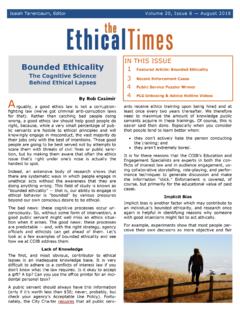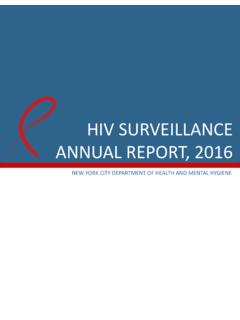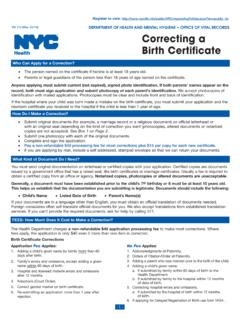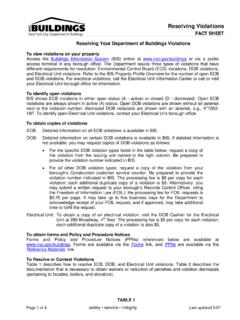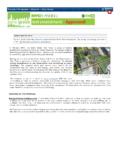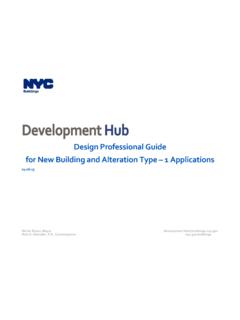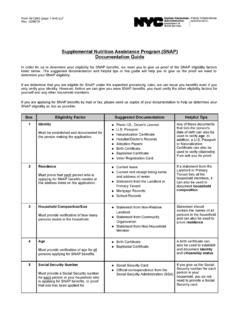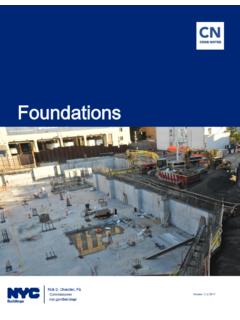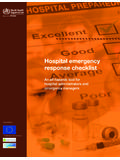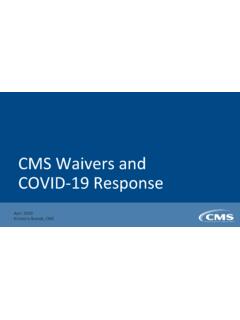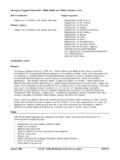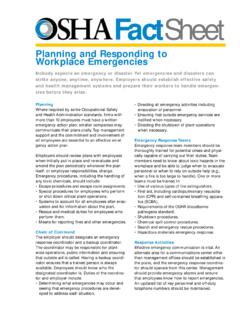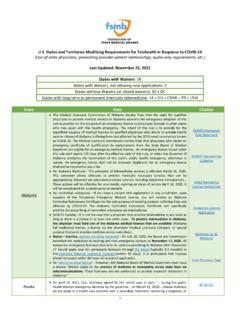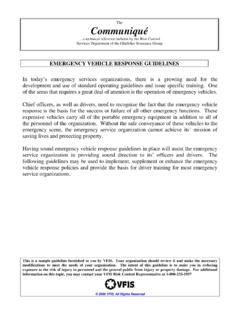Transcription of B-HEARD: 911 MENTAL HEALTH EMERGENCY ALTERNATE …
1 1 B-HEARD: 911 MENTAL HEALTH EMERGENCY ALTERNATE response PILOT PROJECT Frequently Asked Questions FAQ list What is B-HEARD? How will the B-HEARD pilot in Northern Manhattan work? What should 911 callers expect? What are the goals of the B-HEARD pilot? What kinds of expertise do the new B-HEARD Teams have? What kind of assistance can the B-HEARD Teams provide? Will B-HEARD Teams provide follow up to connect people to care? Can I specifically request a B-HEARD Team? Will B-HEARD Teams be deployed in violent situations? When a person is suicidal? How will police be involved in this pilot? When and where will B-HEARD operate?
2 How was the pilot area selected? Which city agencies are in charge of the B-HEARD pilot? What s the difference between B-HEARD Teams and Co- response Teams? What s the difference between B-HEARD Teams and Mobile Crisis Teams? What is a MENTAL HEALTH EMERGENCY ? When should I call 911? Can I text 911 with a MENTAL HEALTH EMERGENCY ? What is B-HEARD? The Behavioral HEALTH EMERGENCY Assistance response Division, or B-HEARD, is a new HEALTH -centered response to 911 MENTAL HEALTH calls. Beginning with a pilot in East Harlem and parts of Central and North Harlem, 911 call operators will dispatch new B-HEARD Teams FDNY EMERGENCY medical Technicians (EMTs)/paramedics teamed with a MENTAL HEALTH professional from NYC HEALTH + Hospitals as the default first responders to people experiencing a MENTAL HEALTH EMERGENCY .
3 B-HEARD Teams will operate seven days a week, 16 hours a day, in East Harlem and parts of Central and North Harlem. The new B-HEARD Teams will use their physical and MENTAL HEALTH expertise, and experience in crisis response to de-escalate EMERGENCY situations and provide immediate care. These teams will have the expertise to respond to a range of behavioral HEALTH problems, such as suicide ideation, substance misuse, and MENTAL illness, including serious MENTAL illness, as well as physical HEALTH problems, which can be exacerbated by or mask MENTAL HEALTH problems. In EMERGENCY situations involving a weapon or imminent risk of harm to self and others, NYPD officers and other EMERGENCY response resources will respond.
4 How will the B-HEARD pilot in Northern Manhattan work? What should 911 callers expect? 2 New Yorkers experiencing or witnessing an EMERGENCY should continue to call 911 for themselves, a loved one, a neighbor, or others. When a B-HEARD Team is dispatched, the team will arrive in a non-transport vehicle and will have the same Basic Life Support equipment as an ambulance. Teams can be identified by their FDNY EMS uniforms and H+H identification and will arrive in an FDNY/EMS marked vehicle. Callers cannot specifically request a B-HEARD Team. Based on a description of the circumstances and need, 911 operators and EMS are trained to triage and assign calls to B-HEARD based on the call location, dispatch criteria and availability of B-HEARD Teams.
5 What are the goals of the B-HEARD pilot? B-HEARD is grounded in New York City's commitment to treat MENTAL HEALTH emergencies as a HEALTH issue, not a public safety problem. Currently, NYPD officers and FDNY EMTs respond to nearly all MENTAL HEALTH 911 calls; however, that often is not the most appropriate form of help for those in a MENTAL HEALTH EMERGENCY and lacks a MENTAL HEALTH professional in the response . B-HEARD will help people with EMERGENCY MENTAL HEALTH needs quickly get appropriate help and HEALTH -centered assessments from trained medical and MENTAL HEALTH professionals. The B-HEARD pilot will likely reduce unnecessary transports to hospitals and will help reduce the number of times police will need to respond to 911 MENTAL HEALTH calls.
6 The results of this pilot will inform how the City responds to MENTAL HEALTH emergencies in other neighborhoods. What kinds of expertise do the new B-HEARD Teams have? B-HEARD Teams include two EMTs/paramedics and a MENTAL HEALTH professional. As trained HEALTH professionals, the B-HEARD Teams can respond to a range of behavioral HEALTH problems, such as suicidal ideation, substance misuse, and MENTAL illness, including serious MENTAL illness, as well as physical HEALTH problems, which can be exacerbated by or mask MENTAL HEALTH problems. Team members also bring significant experience with MENTAL HEALTH crises and are trained jointly to use their physical and MENTAL HEALTH expertise and experience in crisis response to assess and de-escalate EMERGENCY situations.
7 What kind of assistance can the B-HEARD Teams provide? Once on the scene, the Team will work with the person in need of assistance, and if appropriate, other involved parties. The Team will use their experience with crisis response to help de-escalate situations, if needed. They will conduct physical and MENTAL HEALTH assessments and can provide on-site assistance, including but not limited to connecting the person to their existing medical and/or MENTAL HEALTH provider, crisis counseling, or, with their consent, connecting them to follow-up services. If the person requires EMERGENCY medical services, the B-HEARD Team will provide EMERGENCY medical care and call EMS for an ambulance transport.
8 Will B-HEARD Teams provide follow-up care? 3 The B-HEARD Teams will, when needed, refer people to the NYC HEALTH Department for appropriate follow-up services, including HEALTH Engagement and Assessment Teams (HEAT). HEAT offers time-limited pre- and post- crisis case management services and support to people presenting with behavioral HEALTH challenges and/or a HEALTH concern that is affecting daily functioning. Each HEAT team consists of a behavioral HEALTH professional and a HEALTH Navigator, or peer with lived experience with MENTAL HEALTH , substance misuse, homelessness, and/or the criminal legal system.
9 HEAT services are generally in place for up to 90 days, depending on the person s level of engagement and need. B-HEARD: 911 MENTAL HEALTH EMERGENCY HEALTH -CENTERED response PILOT PROJECT Can I specifically request a B-HEARD Team? No. Callers cannot specifically request a B-HEARD Team. Based on a description of the circumstances and need, 911 operators and EMS are trained to triage and assign calls to B-HEARD Teams based on the call location, dispatch criteria and availability of B-HEARD Teams. Will B-HEARD Teams be deployed in violent situations? When a person is suicidal? B-HEARD Teams will not be dispatched to 911 MENTAL HEALTH calls where violence and/or imminent suicide or harm is identified by the 911 operator.
10 Such calls will continue to be handled by NYPD and EMS. Once on the scene, NYPD or EMS can request support from B-HEARD Teams. Will B-HEARD teams be made available for youth under 18 years old? Yes. How will police be involved in this pilot? B-HEARD Teams will respond to all MENTAL HEALTH EMERGENCY calls without law enforcement except where police response is required. The circumstances in which police response is required include situations in subways or involving violence, weapons, imminent harm, criminality, or other circumstances requiring law enforcement assistance. Once a B-HEARD Team has arrived at a location, they can request backup from NYPD if it is not safe for the B-HEARD Team to intervene.
